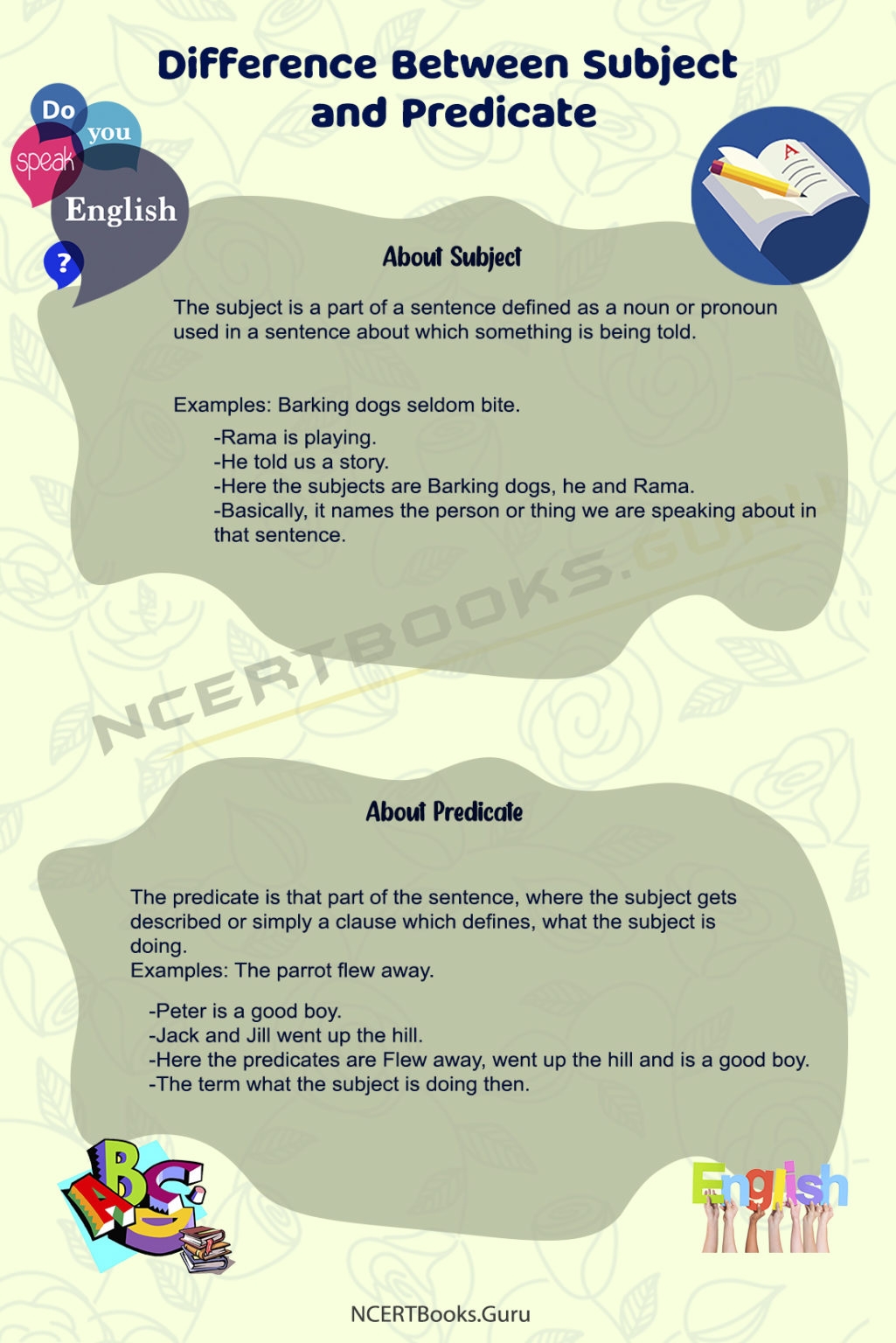In the English language, every sentence is made up of two main parts – the subject and the predicate. Understanding the difference between these two components is crucial in forming coherent and meaningful sentences. The subject is what the sentence is about, while the predicate tells us something about the subject.
While both the subject and predicate are essential in constructing sentences, they serve different roles in conveying information. The subject is typically the noun or pronoun that performs the action in the sentence, whereas the predicate contains the verb and provides information about the subject’s action or state.
Difference between Subject and Predicate
The subject of a sentence is the person, place, thing, or idea that is doing or being something. It can also be described as the topic of the sentence. For example, in the sentence “The cat is sleeping,” the subject is “the cat.” The predicate, on the other hand, includes the verb and any other words that modify or complete the action or state of the subject. In the same sentence, “is sleeping” is the predicate.
Another key difference between the subject and predicate is that the subject is usually at the beginning of the sentence, while the predicate comes after the subject. This structure helps to clearly identify the main focus of the sentence and the action or state being described. Without a clear subject and predicate, sentences can become confusing and difficult to interpret.
It is important to note that the subject and predicate can vary in length and complexity depending on the sentence structure. In some cases, the subject may consist of just one word, while the predicate may contain multiple words, including objects, complements, and modifiers. Understanding how to identify and differentiate between the subject and predicate can greatly improve your writing and communication skills.
In conclusion, the subject and predicate are essential components of every sentence in the English language. While the subject tells us what the sentence is about, the predicate provides information about the subject’s action or state. By understanding the difference between these two elements, you can effectively convey your thoughts and ideas in a clear and concise manner.
